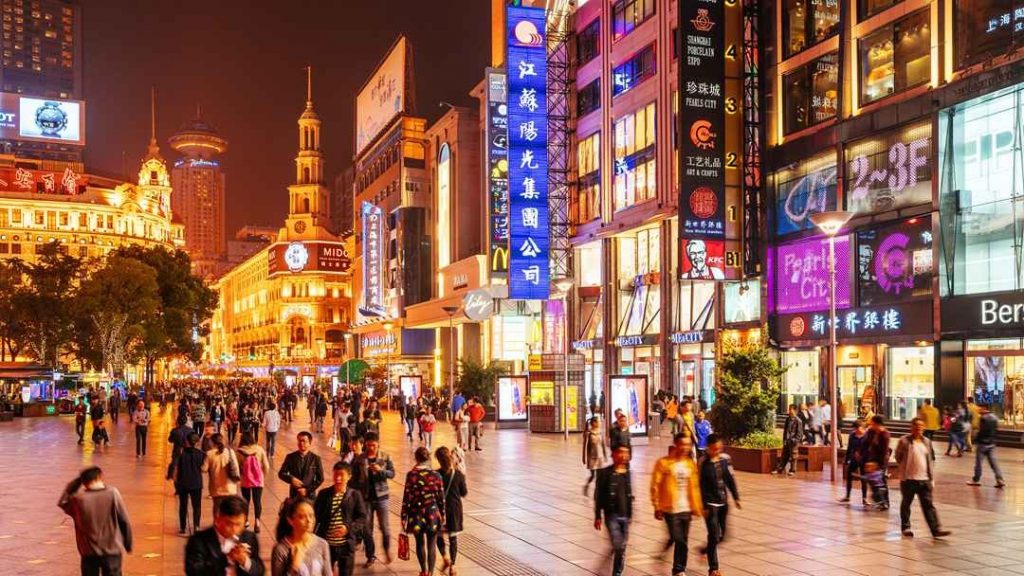Mustafa Hyder Sayed

In July 2020, the Ash Center of Harvard University published a comprehensive public opinion survey on the level of Chinese peoples’ satisfaction with Beijing, which was based on data collected from surveys ranging from 2003 to 2016, from 32,000 individual respondents.
In 2016, the last year that the survey was conducted, 95.5 percent of the respondents were either “relatively satisfied” or “highly satisfied” with Beijing.
“The Communist Party of China and Human Rights Protection: A 100 Years Quest,” a white paper published on June 24 by the State Council Information Office of China, tells a similar tale. The Communist Party of China (CPC) founded in 1921, has come a long way, presenting to the world an unmatched model of people-centered development that consists of unprecedented economic growth, deft handling of the COVID-19 pandemic and eradication of absolute poverty.
China was the only major country that recorded positive growth in 2020, a whopping 2.3 percent (which was significant given the global COVID-19 pandemic).
These accomplishments were by and large absent in developed countries in the West that continue in an attempt to revive the waning economies badly hit by the pandemic.
It is important to reframe the lens when we discuss human rights. The lens must be apolitical, bipartisan and keep people’s well-being at its core, by which a reasonable interpretation of the status of human rights in a country can be reached.
The “fact” that China does not “fit the bill” of the Western notion of a liberal democracy makes it more vulnerable to criticism and an international political onslaught, and is automatically seen as being in the “other camp.”

Xinjiang International Grand Bazaar in Urumqi, China, June 25, 2020. /Getty
This is a phenomenon that is further compounded by the CPC being misunderstood, primarily in the West, and often being perceived as an aggressive organization with international colonial ambitions. The truth is that the CPC’s priority is to preserve and maintain harmony, stability and economic growth for the 1.4 billion people who inhabit China.
The right to education, basic amenities of food and shelter, and public goods by the state are the bare minimum, however, giving people prosperity, bigger purchasing power, and comfort, under an overarching strong rule of law is an exception to the norm.
The international discourse on human rights is increasingly politically charged and agenda-driven, and human rights are used as a weapon as opposed to just what it is: the rights of human beings.
Take the example of China’s Xinjiang Uygur Autonomous Region, where Western countries allege there are “concentration camps” and a “genocide” taking place. Thus far, these tall claims have not been backed by any evidence. There are no corroborated pictures of concentration camps or any form of genocide that have surfaced.
Furthermore, the claim that Uygurs are being subjected to genocide is challenged by their numbers rapidly increasing at a faster pace than that of the Han ethnic group in Xinjiang.
Finally, China has exported shared development to the developing world, helping local and marginalized communities in Africa, Asia and the Middle East through the Belt and Road Initiative as well as through recent vaccine donations in light of the COVID-19 pandemic.
Abuluoha villagers in Butuo County of Liangshan Yi Autonomous Prefecture, southwest China’s Sichuan Province, June 29, 2020. /Xinhua
By making significant investments in energy, infrastructure and socio-economic projects, China is assisting developing countries in development and economic growth by creating employment and boosting industry.
As we have seen in China, there is a direct correlation between economic growth and human rights, as through economic growth, people are able to become self-sufficient and independent and act as agents of change in their communities.
Let us determine the status of human rights by collecting transparent data, by using tangible reference points such as the level of satisfaction of individuals with the state as well as their disposable income as consumers, that will help us gauge the nature of their living standards and well-being, instead of evidence-lacking assertions that are spun to fulfill narrow, political interests.
Mustafa Hyder Sayed is the executive director of the Pakistan-China Institute.
 Africa -China Review Africa -China Cooperation and Transformation
Africa -China Review Africa -China Cooperation and Transformation
